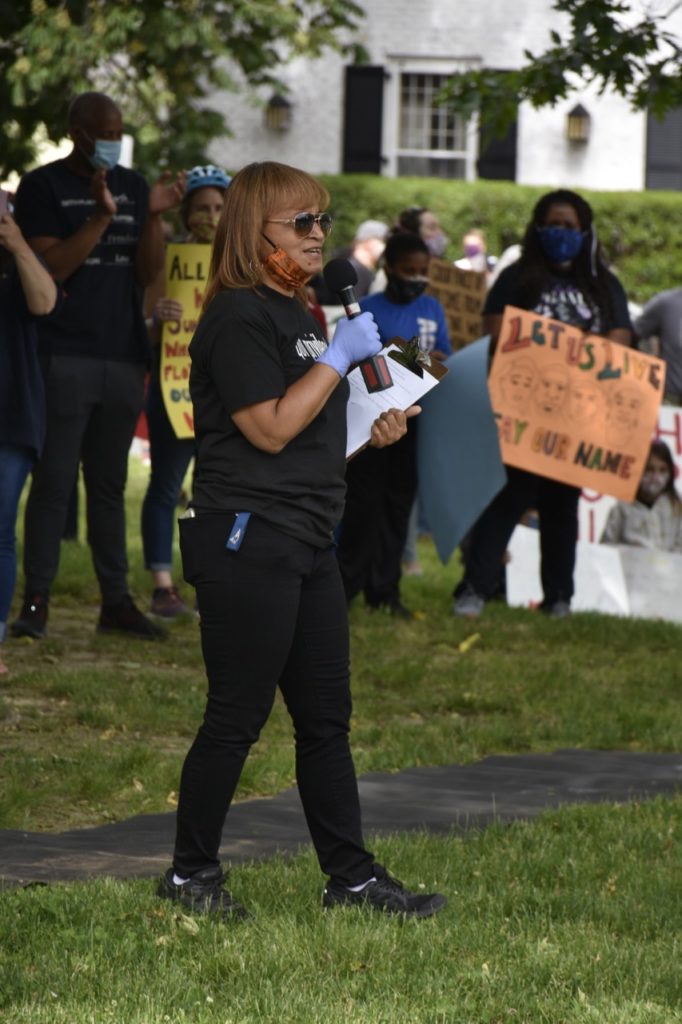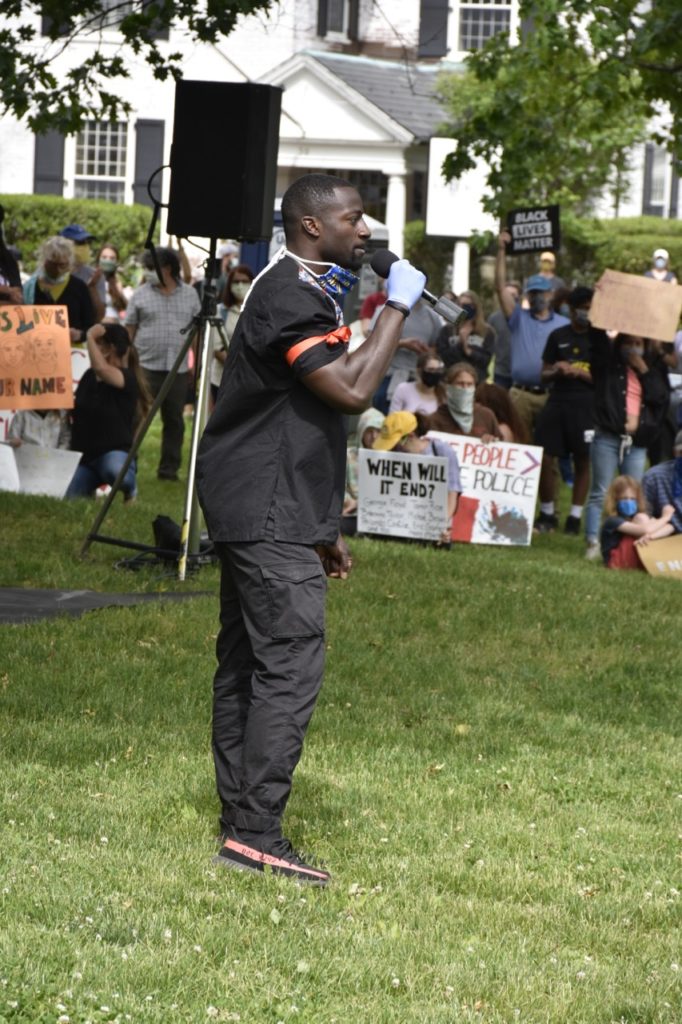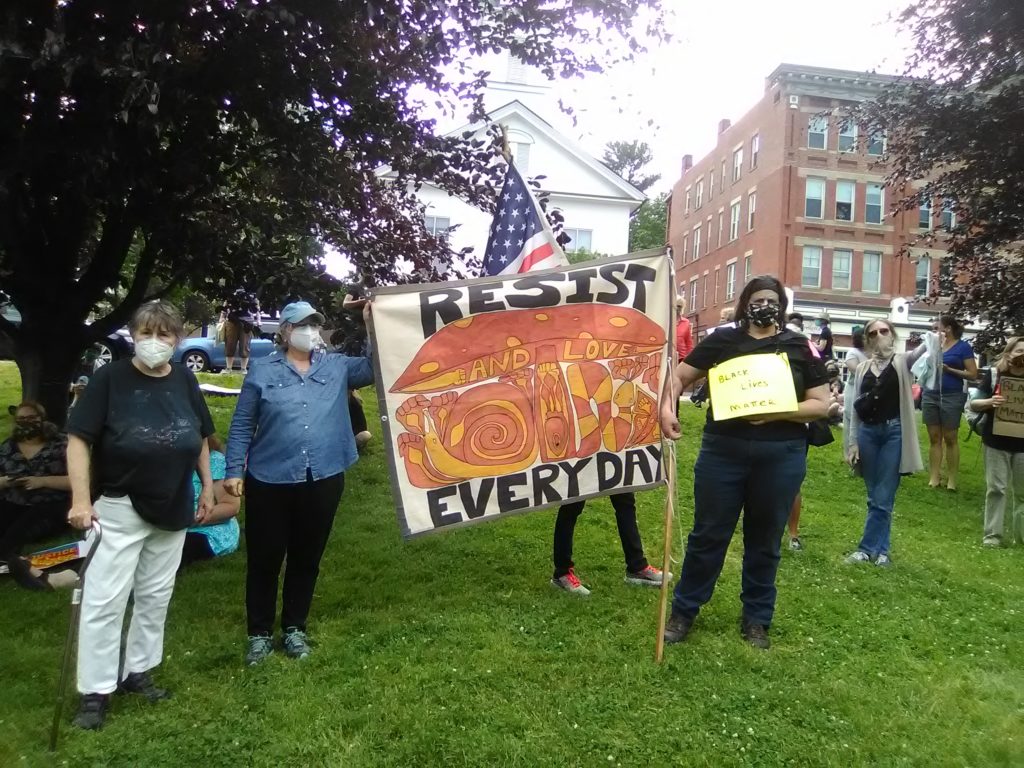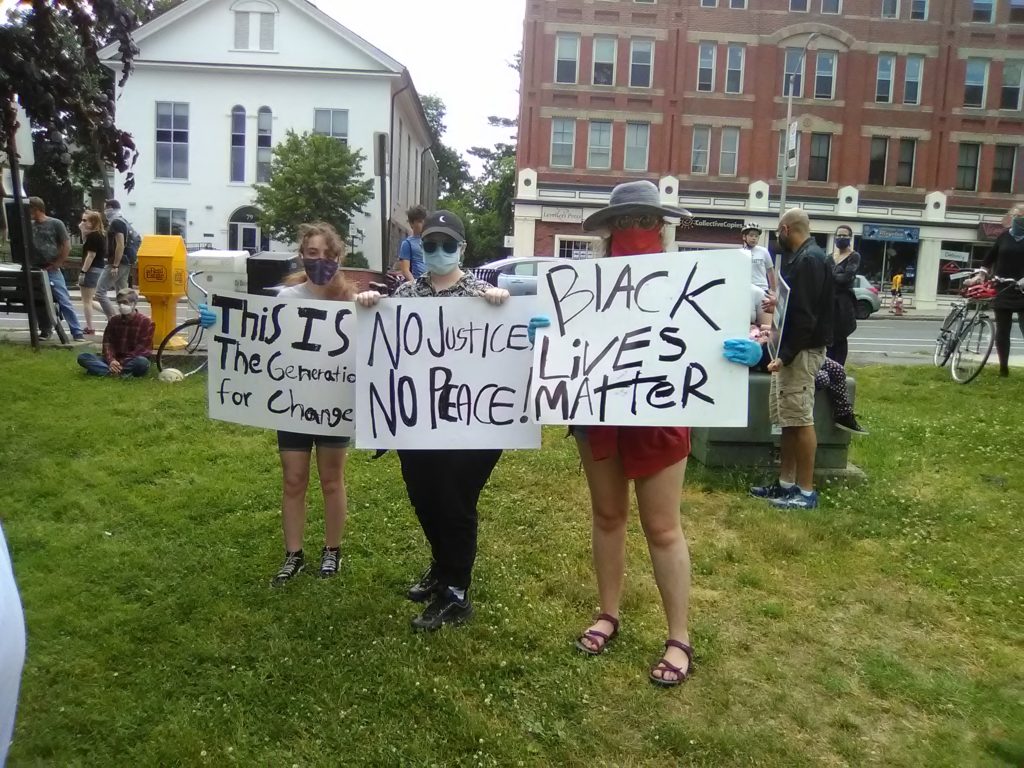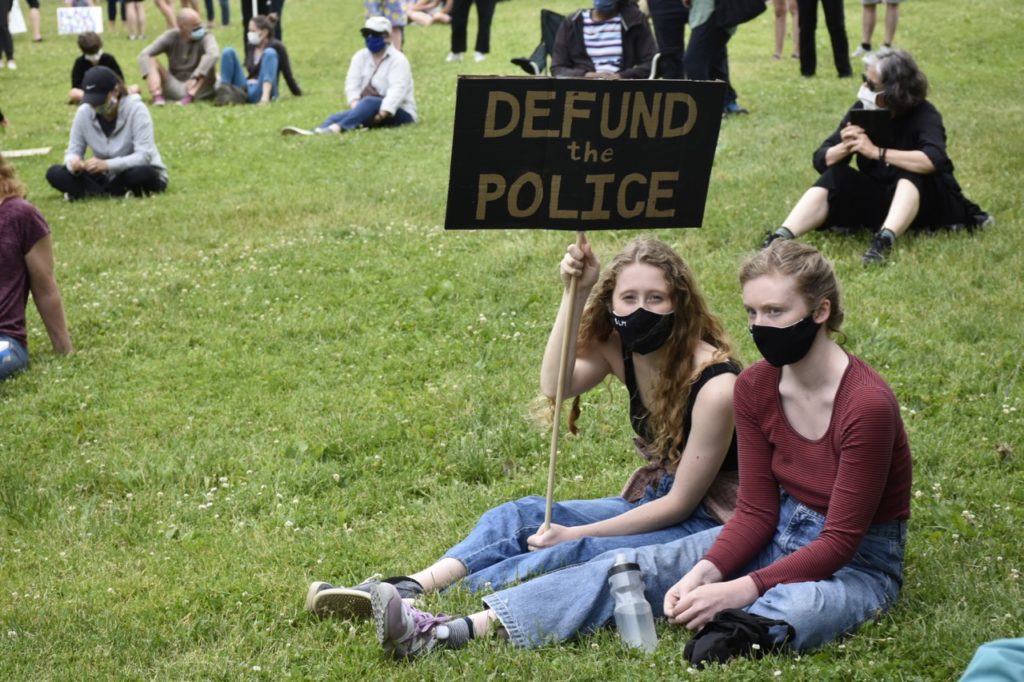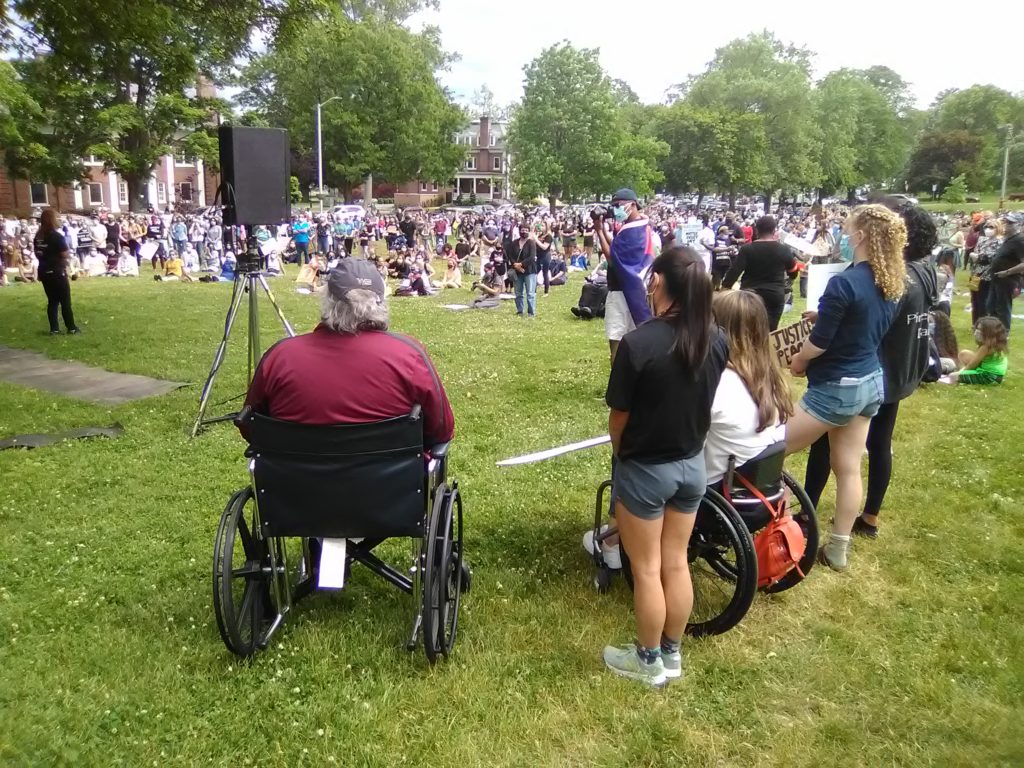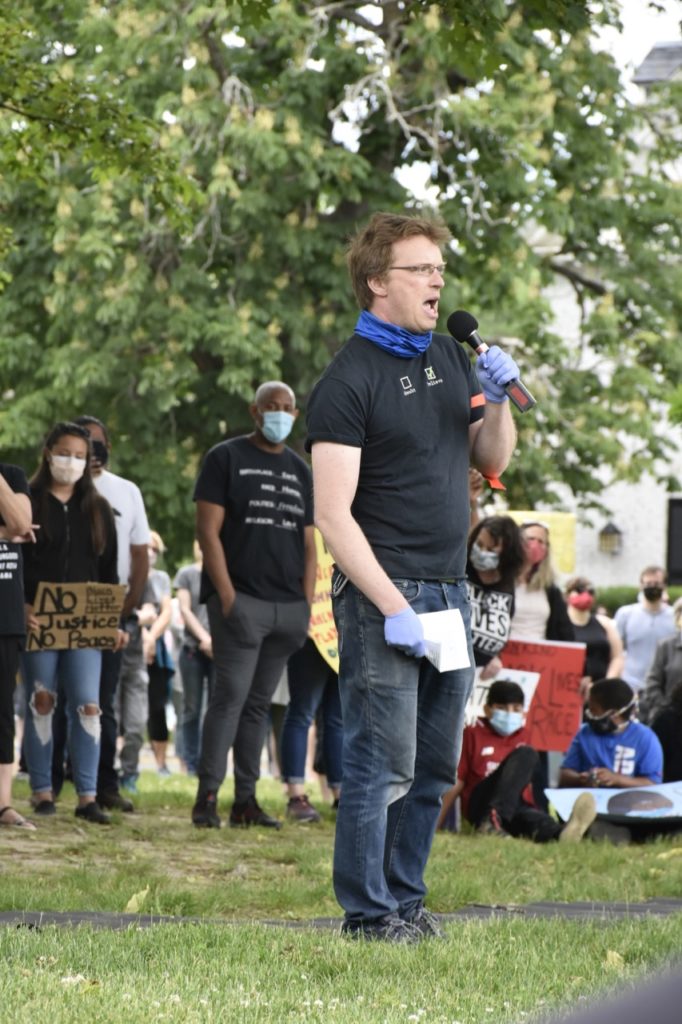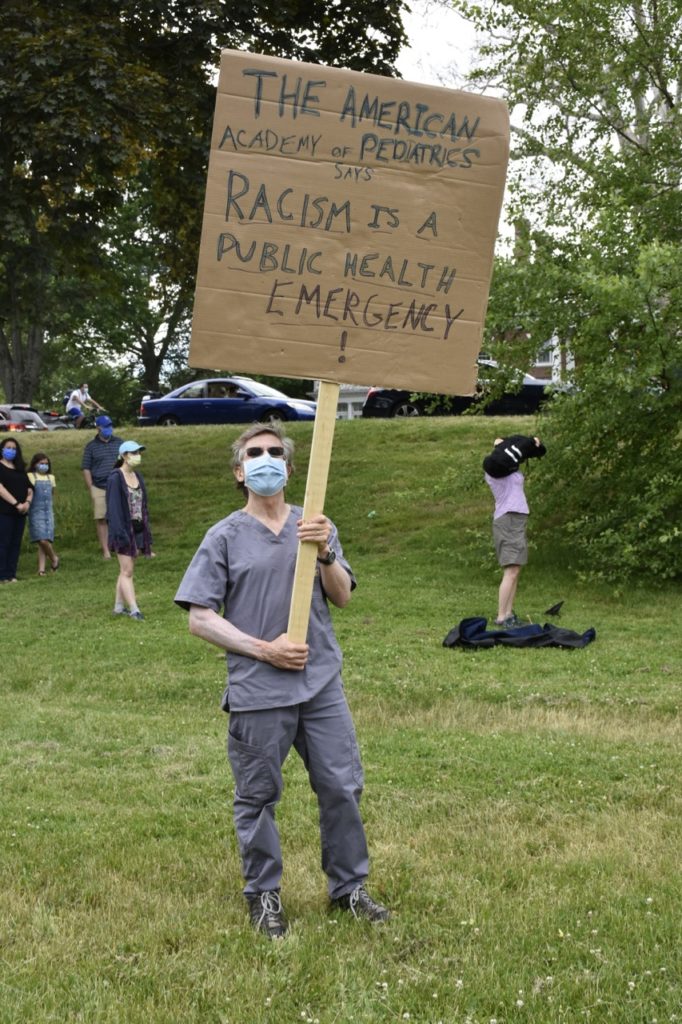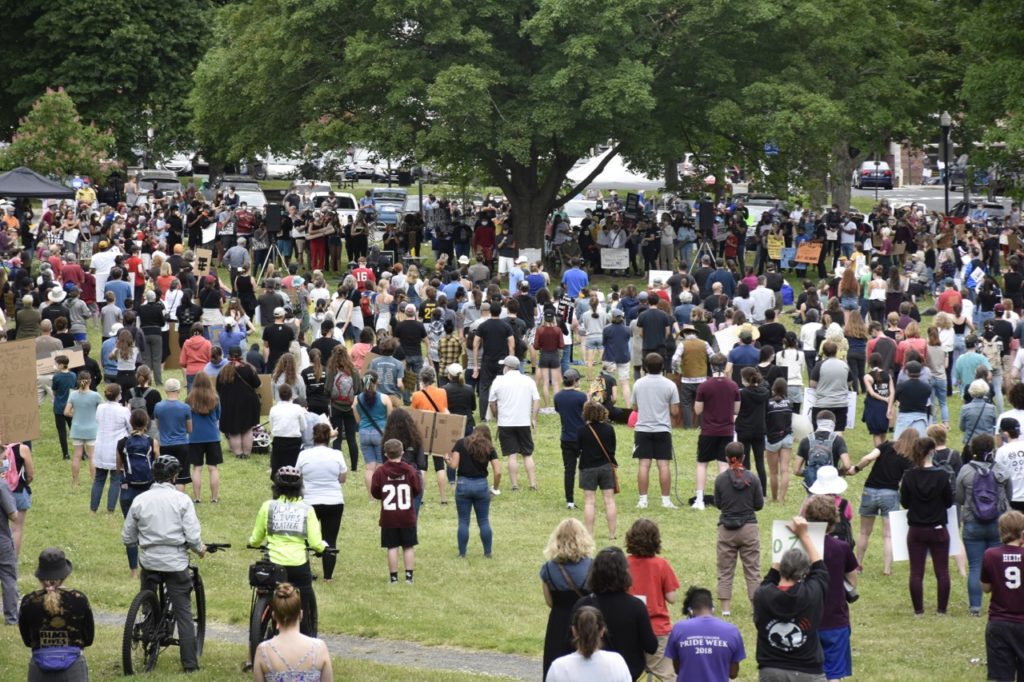LARGE TURNOUT ON AMHERST COMMON IN SUPPORT OF BLACK LIVES
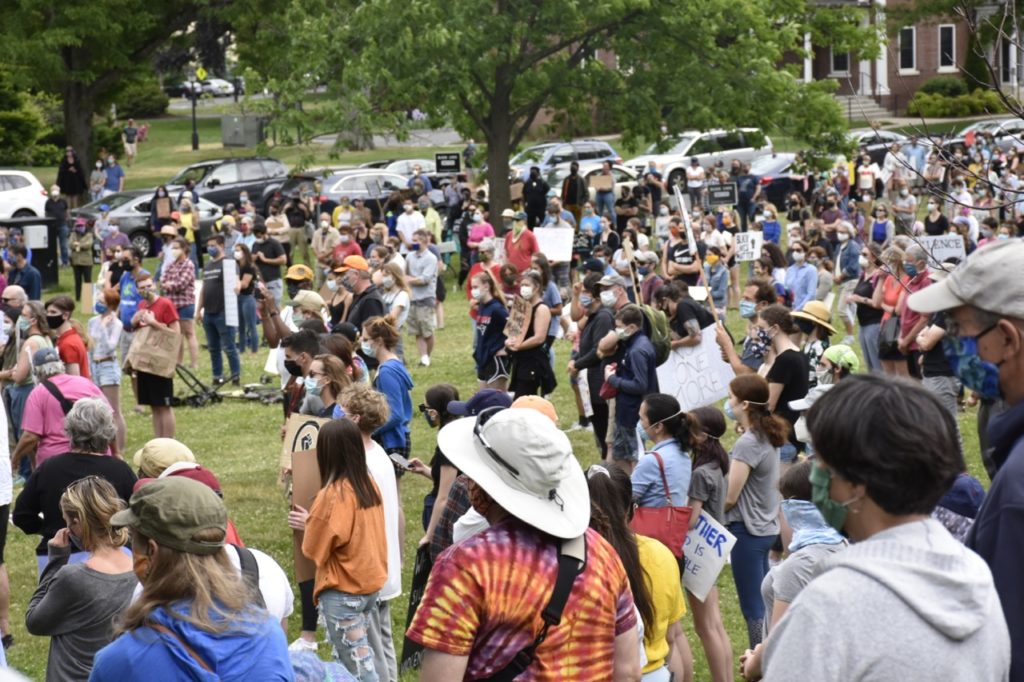
A crowd estimated at over 1000 participated in a rally for Black Lives on the Amherst Common on Sunday June 7. Photo: Art Keene
by Marla Goldberg-Jamate and Art Keene
For the second consecutive Sunday, more than 1,000 people gathered on the Amherst Town Common on Sunday June 7, this time for an Educators for Black Lives Matter rally. This week’s rally was hosted by Mary Custard, Dean of Students at Amherst Regional High School, and Sarah Ryan Talbot, a staff attorney for the Committee for Public Counsel Services. The previous week’s vigil was organized by Peter Blood and Katie Tolles of the Interfaith Opportunities Network.
The event was not sponsored by the Amherst schools, but Amherst public school teachers and students of many ethnic and racial backgrounds, called upon the Town to build on its strengths as a well-educated community to promote fairness and justice. Amherst residents were urged to lead the charge in building more just communities where all, including Black citizens, are treated well. There were repeated chants of “Black Lives Matter,” and “No Justice, No Peace.”
The Common was filled from the South Common parking lot to College Street with those in attendance making an effort to maintain a modicum of social distancing. The masked crowd was made up of people of all ages and included many family groups. There was no apparent police presence.
There were 10 speakers; five students from the Amherst Public Schools and five educators. Student speakers were: Monica Cage, Khalila Lord-Arond, Shaun Lohse, Petua Mukimba and Phoenix Ferreira-Ford. Educator speakers were: Phila Son, John Bechtold,, Kara Nye, Cedric Gonnet, and Tem Blessed Ferreira.
The speakers raised questions about what public schools are teaching – or failing to teach – which has allowed for the apparent rise in white supremacy, and for unjustified killings of Black men by White police officers. Many speakers referred to the May 25 death of George Floyd in Minneapolis, MN., while in custody of police, including Officer Derek Chauvin, who has been shown in a bystander video kneeling on Floyd’s neck. Chauvin is now facing charges of 2nd degree murder while three other officers are charged with aiding and abetting. Most speakers included a plea for significant changes in the curriculum and for teachers to work harder to hear and to include student voices and particularly the voices of students of color.
Kara Nye, band teacher at the high school and middle school, and a member of the Little Traverse Bay Band of the Odawa Indians, spoke about the importance of solidarity in the movement and called on all present to build solidarity in their lives. She spoke of the ever-present worry of parents of black and brown children for their children’s well-being. She spoke to the black and brown youth in the audience, reminding them their educators see them and hear them and are committed to dismantling the racism that is “in the air we breath and the English language that we speak”. She said that solidarity begins when we prioritize anti-racism every day and when we, who are not Black or not People of Color, show solidarity when we “recognize the racism in our own minds and clean up the mistakes that we make and when we amplify the voices of black people and don’t ask them to do the work for us”.
Student Khalila Lord-Arond, an ARHS student and daughter of School Committee member Heather Lord, won loud applause for her solo rendition of “Ella’s Song” by Bernice Johnson Reagon. which includes the lyrics, “we who believe in freedom cannot rest.”
A group of five teachers read a letter to other white educators saying that “we need to do better”. They said, people like Derick Chauvin, the police officer charged with the murder of George Floyd, came up through our classrooms. They asked, what do we teach and not teach to abet or to prevent such behavior and attitudes? What do we do when our white students push back against the curriculum when it includes the perspectives of people of color? What do we do when white students in our classroom are dismissive of the experiences of students of color? How do we take the feedback of students of color when they say they are experiencing racism in our schools? They concluded that when we favor the comfort of our white students over our students of color, we are teaching white supremacy.
ARHS rising senior Petua Mukimba shared three stories about her experiences at ARHS that illustrated what Black Lives Matter means to her and highlighted how we can center Black lives and make sure that everyone’s voice is heard and valued and how we can be aware of how violence against Black people elsewhere is manifest in our own community. While praising her instructors at ARHS she also pointed out some painful disappointments, noting for example, that as a serious student who embraced all of her virtual assignments during the COVID-19 shutdown, how disappointing it was for her to receive her assignments and have her instructors make no acknowledgement of the turmoil and protest sweeping the nation and make no effort to incorporate this historic moment into their curriculum or to show any awareness of how this crisis in the midst of a crisis might be impacting her. And she said that this sends a message that her life and the events that shape it does not matter and she asked her teachers to do better and to “change your curriculum so I will know that my life matters”.
A “Black Lives Matters At School Pledge,” was taken, and attendees also participated in an 8 minute and 46 seconds “kneel of silence.”
For a video of the event shot by Russ Vernon-Jones, look here.
A GALLERY OF PHOTOS FROM THE RALLY

